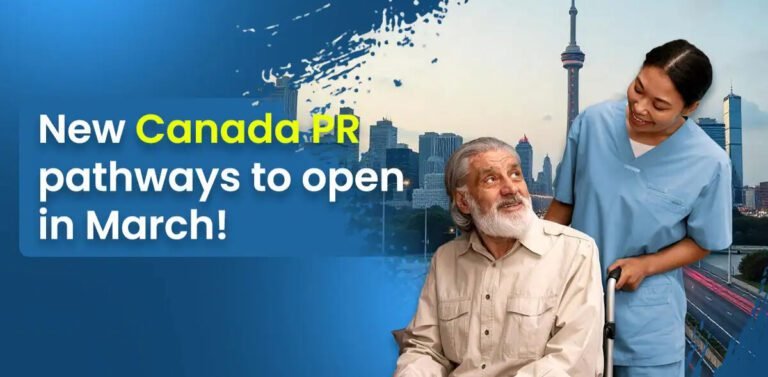Adapting to Life in Canada
Moving to a new country can be an exciting and life-changing experience. But as you settle into your new home in Canada, it’s natural to feel overwhelmed or unsure about how to adjust to unfamiliar surroundings. Don’t worry – we’ve got you covered! In this blog post, we’ll share some valuable tips and tricks for adapting to Canadian culture, making new friends, and feeling at home in no time. Whether you’re a first-time expat or a seasoned traveler, these suggestions will help make your transition smoother and more enjoyable.

Adjusting to the Canadian Lifestyle
Making the move to Canada can be a big adjustment. Here are some tips to help you settle into your new home and lifestyle:
1. Learn about Canadian culture and customs. This will help you understand the people and the way of life here.
2. Make an effort to meet people and get involved in your community. There are many social and cultural events taking place all across Canada, so get out there and explore!
3. Get to know your new city or town. Take some time to walk around and familiarize yourself with the lay of the land.
4. Stay healthy and active. With all of the great outdoors to explore, there are endless opportunities for keeping fit in Canada.
5. Be patient as you adjust to the change. It can take some time to get used to a new country, but eventually, it will start to feel like home sweet home!
Accessing Government Programs and Services
There are a number of government programs and services that you may be eligible for as a new Canadian citizen. These include things like healthcare, education, employment insurance, and social assistance. To access these services, you will need to have your permanent resident card or citizenship card with you.
You can find out more about the different government programs and services that are available to you by visiting the website of the Government of Canada. You can also contact your local Immigration, Refugees and Citizenship Canada office for more information.
Finally, you may be able to find out about specific programs or services that are specifically designed for new Canadian citizens by speaking with a settlement worker in your area.
Finding a Job and Building a Career
The first step to finding a job in Canada is ensuring that you have the proper documentation. Without a valid work permit, you will not be able to legally work in the country. Once you have your work permit sorted out, the next step is to start job hunting. The best place to look for jobs is online, on websites like Indeed and LinkedIn.
There are also many government-funded programs designed to help newcomers find employment in Canada. These programs can provide you with job search assistance, skills training, and other resources. To find out if you’re eligible for any of these programs, contact your local Canadian Job Bank office.
Once you’ve found a job, it’s important to start building a career path. This means setting goals and taking steps to achieve them. It may also involve pursuing further education or training, networking, and volunteering. By taking the time to build a strong foundation for your career, you’ll be well on your way to success in Canada.

Connecting with Your Community
As an immigrant, you may feel like you’re in a new world when you first arrive in Canada. While it may take some time to adjust, there are many ways to connect with your community and feel at home. Here are a few tips:
1. Get involved in local activities and events. This is a great way to meet new people and learn about your community.
2. Volunteer with a local organization. Not only will you be helping out others, but you’ll also get to know people in your community.
3. Join a club or group that interests you. This could be anything from a book club to a sports team. It’s a great way to meet people with similar interests.
4. Attend local festivals and celebrations. These are great opportunities to learn about the culture and traditions of your community.
5. Talk to your neighbours! Getting to know the people who live near you can help make your community feel like home.
Understanding Canadian Culture and Language
As an immigrant or new Canadian, it is important to understand Canadian culture and language. There are many resources available to help you learn about Canada and its customs. The following are some tips for understanding Canadian culture and language:
1. Learn about the history and geography of Canada. This will help you understand the culture and why people act the way they do.
2. Spend time with Canadians. Talk to them, ask questions, and observe their behavior.
3. Read Canadian news sources and books, watch Canadian movies and television shows, and listen to Canadian music. This will help you understand the way Canadians think and communicate.
4. Attend cultural events and festivals. This is a great way to meet people and learn about the different cultures that make up Canada.
5. Learn English or French, the two official languages of Canada. Many Canadians are bilingual, so it is also beneficial to learn both languages.
Navigating the Healthcare System
The healthcare system in Canada is different from what you may be used to in your home country. Here are some tips for navigating the healthcare system in Canada:
1. Get a health card: In order to access publicly-funded healthcare services in Canada, you will need a health card. You can apply for a health card through your province or territory of residence.
2. Find a doctor or healthcare provider: Once you have a health card, you can find a doctor or healthcare provider near you. You can search online or ask friends and family for recommendations.
3. Know what is covered by your health card: Your health card will cover some, but not all, medical expenses. For example, most provinces and territories cover hospital stays and visits to the doctor, but dental care is usually not covered. If you have questions about what is covered by your health card, contact your provincial or territorial health insurance plan.
4. Make sure you have private health insurance: In addition to your provincial or territorial health insurance plan, you may also want to get private health insurance to cover expenses that are not covered by your public plan (e.g., prescription drugs, dental care).
Resources for Newcomers
If you’re new to Canada, there are a few organizations that can help you settle in and adjust to life here. The Canadian Government has a website called “Newcomers to Canada” that has information on everything from finding a place to live to getting a job. There are also provincial and territorial governments that have their own programs and services for newcomers.
There are also many private organizations that offer services to newcomers, such as the YMCA and the Canadian Red Cross. These organizations can help you with things like finding housing, getting a job, and learning English or French.
It’s important to get involved in your community when you’re settling into your new home. There are often newcomer groups or clubs that you can join, which can help you meet people and make friends. You can also volunteer with organizations in your community. This is a great way to meet people and learn about Canadian culture.

Conclusion
Moving to a new country can be both exciting and daunting. To make your transition smoother, follow the tips we have shared in this article and you will soon feel at home in your new environment. Remember that it takes time to adjust, so give yourself some grace as you settle into life in Canada. With a positive attitude and an eagerness to explore, you’ll find plenty of opportunities for growth and adventure as you make Canada your home!
Additionally, be sure to take advantage of the resources available to help you make the most of your experience in Canada. From connecting with local communities and taking advantage of cultural events, to connecting with organizations that can provide guidance and support, there are many ways immigrants can make the most of their new home. Don’t forget to also explore the natural beauty that Canada has to offer – from a variety of outdoor activities to stunning landscapes and impressive wildlife. As long as you research, ask questions, and stay open-minded, you’ll find plenty of ways to settle into life in Canada.







